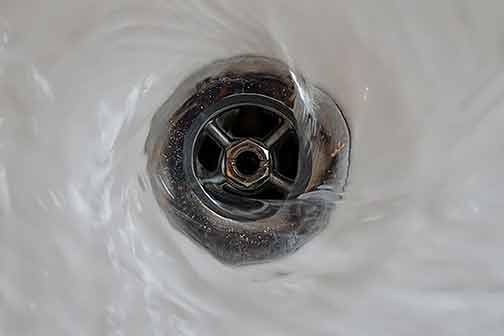
Drain clogs are almost synonymous with modern plumbing systems. Regardless of how careful you are with your home’s plumbing, Alliance Management warns, at some point, you are going to have a problem with clogged drains. This can happen in your kitchen, shower, or bathtub.
Drains may become clogged because of the normal use of the plumbing, such as when soap scum builds up inside the pipes. Clogs will also happen if you allow the wrong materials to get into your drains. Examples of items not to flush into the drain include grease and starchy foods.
Regardless of whether your drain gets clogged because of the normal use of the system or due to abuse, you will need to unclog the drains. How you choose to do this matters. If you are like the typical homeowner, your first instinct when you have a drain clog is to DIY the problem.
In looking for that DIY fix, most homeowners will look for the quickest. This usually means using a chemical drain cleaner. Chemical drain cleaners feel like a great option because they are convenient; all you have to do is pour it into the drain and wait for it to work its magic.
But you must be careful when you use chemical drain cleaners because they can hurt your drains more than they can help. Although they are effective at removing clogs, that effectiveness often comes at a cost. The last thing you want when unclogging a drain is to compound the problem.
The trouble with chemical drain cleaners
What’s wrong with using chemical drain cleaners to rid your drainpipes of annoying clogs?
- The very thing that makes chemical drain cleaners so effective at unclogging drains also makes them a problem. These drain cleaners work by generating a lot of heat inside the pipes to melt away clogs. The problem is the same heat that unclogs your pipes will also soften PPVC pipes and weaken them.
- The second issue is that chemical drain cleaners are highly corrosive. They will directly eat away and corrode pipes. Furthermore, if the chemical drain cleaner fails in removing the clog at all or it removes only a part of it, it will remain inside the pipes, causing further damage to your drains.
- Lastly, chemical drain cleaners are not safe because they contain toxins. These toxins can harm your skin while using the drain cleaner or if you use them regularly. Moreover, the toxins in these products harm the environment when they find their way into the soil or water bodies.
If chemical drain cleaners are bad for your drain, health, and the environment, what are the alternatives? There are lots of safe alternatives to chemical drain cleaners and most of them involve using items and materials you already have in your home.
Alternatives to chemical drain cleaners
Hot water with dish soap
This solution is deceptively simple but very effective and it costs nothing. Simply add a few tablespoons of dish soap (if you have natural dish soap, all the better!) to hot water and pour the solution into the drain. Wait a few minutes and rinse out with more hot water. This will remove the grease inside your drain. It is also a great way to clean your garbage disposal.
Plungers
Every home needs two types of plungers. One flange plunger for the toilet (it has a longer handle and a smaller soft cup at the end of the plunger) and one cup plunger for your kitchen sink. Plungers are easy to use and do a great job if you use the right plunger in the kitchen or bathroom.
Drain snakes
Drain snakes come in different forms, a flexible plastic rod, long coil, or some other version. Regardless of the type of drain snake you use, they all work in the same way; insert the snake into the drain opening, twist it and try to hook whatever is blocking the drain, and pull it out. Be aware that this process can get a little gross.
Coat hangers
Coat hangers are an effective alternative when you don’t have a drain snake. To create a makeshift drain snake, fetch a wire coat hanger and straighten it out. Use it in the same way that you would use a proper drain snake.
Salt, borax, and vinegar
Sodium borate, also known as borax, works great for cleaning clogs from drains. Combine a quarter cup of borax with a quarter cup of vinegar and a quarter cup of salt and pour the mixture into your drain. Wait ten minutes and rinse the drain out using hot water.
Baking soda and vinegar
Baking soda can be used in different ways to clean clogged drains. You can use half a cup of baking soda with half a cup of salt or a cup of baking soda with half a cup of vinegar. Combining baking soda with vinegar creates a fizzy reaction that will help clear clogs from your drain.

